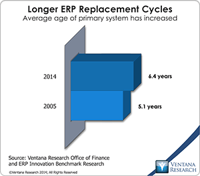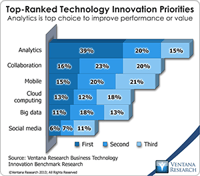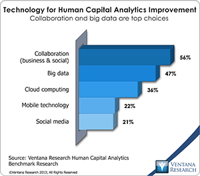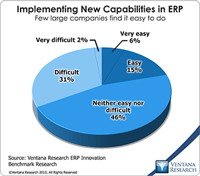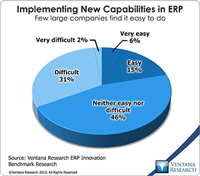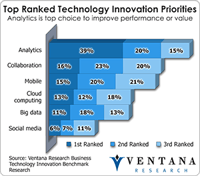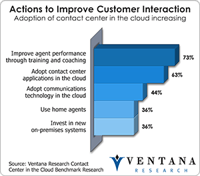This year Oracle OpenWorld conference opened with a fiery speech by Larry Ellison, who has stepped down from his role as CEO to become Executive Chairman and CTO. Filling his rhetoric with claims of market leadership and attacks on competitors SAP and Workday, Ellison set an aggressive tone for those who followed him. In a talk relevant to my research practice, Chris Leone, senior vice president of applications development, asserted that Oracle is making progress in human capital management...
Read More
Topics:
Mobile,
Social Media,
HCM,
Human Capital Analytics,
Human Capital Management,
Core HR,
Employee Engagement,
Platform as a service,
TM,
Wellness,
Analytics,
Business Collaboration,
Cloud Computing,
Collaboration,
Mobility,
Oracle,
HRMS,
Talent Management,
Social,
PaaS
Like other vendors of cloud-based ERP software, NetSuite offers the key benefits of software as a service (SaaS): a smaller upfront investment, faster time to value and potentially lower operating costs. Beyond that NetSuite’s essential point of competitive differentiation from is broad functionality beyond financial management, including capabilities for customer relationship management (CRM), professional services automation (PSA) and human capital management (HCM). These components make it...
Read More
Topics:
Microsoft,
Mobile,
SaaS,
Sales,
Social Media,
Customer Experience,
ERP,
HCM,
Human Capital,
Office of Finance,
communications,
Dynamics AX,
Dynamics GP,
Dynamics NAV Dynamics SL,
PSA,
Sage Software,
UI,
Unit4,
Analytics,
Business Analytics,
Business Collaboration,
Business Performance,
Cloud Computing,
Financial Performance,
Workforce Performance,
CFO,
CRM,
FinancialForce,
HR,
Infor,
Social,
Financial Performance Management,
FPM,
Plex,
Professional Services Automation,
Workday Collaboration
The developed world has an embarrassment of riches when it comes to information technology. Individuals walk around with far more computing power and data storage in their pockets than was required to send men to the moon. People routinely hold on their laps what would have been considered a supercomputer a generation ago. There is a wealth of information available on the Web. And the costs of these information assets are a tiny fraction of what they were decades ago. Consumer products have...
Read More
Topics:
Big Data,
Mobile,
Predictive Analytics,
Sales Performance,
Social Media,
Customer Experience,
Performance,
Operational Performance,
Analytics,
Business Analytics,
Business Collaboration,
Business Intelligence,
Business Performance,
Customer & Contact Center,
Financial Performance,
IBM,
finance,
Sales Performance Management,
Social,
Financial Performance Management,
SPSS
Epicor used its recent user group conference to explain its strategic direction and product roadmap. The company is the result of multiple mergers of business software corporations over the past 15 years; its target customers are midsize companies and midsize divisions of larger organizations. Its most significant products are Epicor (ERP software aimed mainly at manufacturing and distribution companies) and Activant Solutions (software for small and midsize retailers, including a point-of-sale...
Read More
Topics:
Microsoft,
Mobile,
SaaS,
Sales,
Supply Chain Performance,
Customer Experience,
ERP,
HCM,
Human Capital,
Office of Finance,
communications,
Dynamics AX,
Dynamics GP,
Dynamics NAV Dynamics SL,
Epicor,
Sage Software,
UI,
Unit4,
Operational Performance,
Analytics,
Business Analytics,
Business Performance,
Cloud Computing,
Collaboration,
Customer & Contact Center,
Financial Performance,
Workforce Performance,
CFO,
FinancialForce,
HR,
Infor,
Workday,
Social,
Financial Performance Management,
FPM,
Plex
In the past year Kronos announced a major release of its Workforce Central suite and more recently, made an announcement regarding a major investment that should help keep the company well capitalized. Kronos is one of the largest vendors of workforce management systems, providing time and attendance, labor scheduling, absence management, HR management, payroll and recruiting applications. In 2013 the company grew to almost US$1 billion in revenue, selling to companies around the globe and...
Read More
Topics:
Mobile,
Social Media,
Governance,
HCM,
Kronos,
Office of Finance,
Technology Innovation Award,
Business Analytics,
Business Collaboration,
Business Intelligence,
Cloud Computing,
Collaboration,
Workforce Performance,
compliance,
HR,
HRMS,
Risk & Compliance (GRC),
Value Index,
Workforce Management,
Social
At its recent Connect 2014 event IBM announced IBM Kenexa Talent Suite, an integrated talent management suite. The release strengthens its Smarter Workforce initiative by combining IBM and Kenexa products and services in one human capital management (HCM) offering. IBM Kenexa Talent Suite also addresses increasing efforts by human resources organizations to optimize their activities through more effective use of technology, a topic covered in our 2014 HCM research agenda. Specifically, the...
Read More
Topics:
Big Data,
Mobile,
SAP,
Social Media,
HCM,
Kenexa,
Recruiting,
Analytics,
Business Analytics,
Business Collaboration,
Business Intelligence,
Cloud Computing,
Collaboration,
IBM,
Oracle,
Workforce Performance,
Cognitive Computing,
HR,
IBM Watson,
Social
In the wake of the past year’s usual crop of failed ERP implementations, I’ve read a couple of blogs that bemoan the fact that ERP systems are not nearly as user-friendly or intuitive as the mobile apps that everyone loves. I’ve complained about this aspect of ERP, and our research confirms that ERP systems are viewed as cumbersome: Just one in five companies (21%) said it is easy to make changes to ERP systems while one-third (33%) said making changes is difficult or very difficult. Yet as...
Read More
Topics:
Mobile,
SAP,
ERP,
Analytics,
Business Collaboration,
Business Performance,
Cloud Computing,
Financial Performance,
Oracle,
CFO,
Infor,
Workday,
Social,
business process,
FPM,
Intacct
Enterprise resource planning (ERP) systems emerged in the 1990s. Even though they don’t do much in the way of planning, the systems provide companies a means of centralizing and consolidating transaction data collection (such as purchase orders, inventory movements and depreciation), automating the management of processes, and handling the bookkeeping and financial record keeping for these transactions and related processes. ERP systems are an indispensable piece of IT infrastructure in today’s...
Read More
Topics:
Mobile,
SAP,
Social Media,
Supply Chain Performance,
ERP,
Operational Performance,
Analytics,
Business Collaboration,
Business Performance,
Cloud Computing,
Financial Performance,
Oracle,
CFO,
Infor,
Workday,
Social,
FPM,
Intacct
Finance departments don’t immediately come to mind in conversations about social collaboration technology. Most of the software used for social collaboration that I’ve seen demonstrated focuses on the sales process or for broader employee engagement. The Facebook-style interface may cause finance department managers and executives to roll their eyes, especially if they’re over 40 years old. Yet business and social collaboration is an important set of capabilities that has been taking hold in...
Read More
Topics:
Customer Experience,
ERP,
communications,
Operational Performance,
Business Collaboration,
Business Performance,
Cloud Computing,
Collaboration,
Financial Performance,
Workforce Performance,
CRM,
Social,
FPM
Cisco is without doubt best known as a supplier of networking systems. Its products have been used by companies large and small to build local and wide area networks. It has played in the contact center space as a provider of network and call management systems that sit between public networks and contact center agents to manage the delivery of interactions to the right extensions and provide agents with softphones so they can manage inbound and outbound calls. These systems were designed to...
Read More
Topics:
Sales Performance,
Social Media,
Customer Experience,
Logitech,
Mobile Apps,
Operational Performance,
Analytics,
Business Analytics,
Business Collaboration,
Cloud Computing,
Collaboration,
Customer & Contact Center,
Customer Service,
Call Center,
Cisco,
Contact Center,
Contact Center Analytics,
CRM,
Unified Communications,
Upstream Works,
Social,
Workforce Force Optimization

